
Edition Delta: German home of outstanding Korean authors
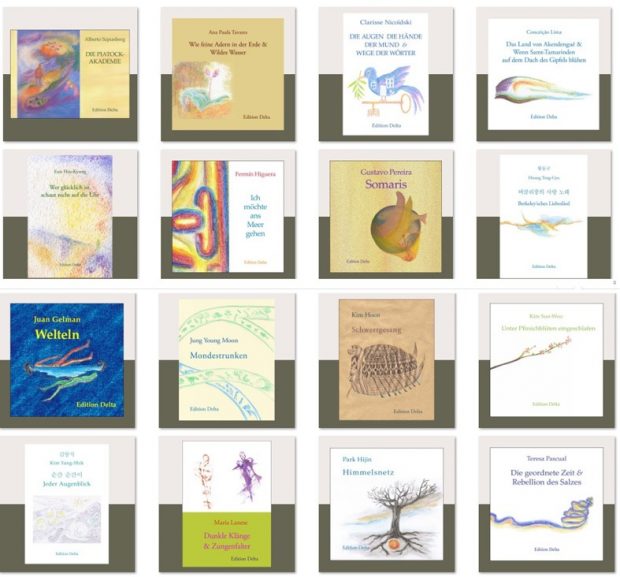
Interviewed by Ashraf Aboul-Yazid
President of the Asia Journalists Association
The Stuttgart literary publisher Edition Delta was awarded the German Publisher Prize 21 by the Berlin Ministry of Culture at the Münchner Kammerspiele for its transcultural commitment, which also includes a continuous literature series with outstanding Korean authors. In this interview I come closer to the home of Edition Delta and its directors and editors Juana Burghardt and Tobias Burghardt:
How did it start, to establish a publishing house devoted to global literature in Germany?
New literatures are constantly emerging around the world. The translational approach of Edition Delta is aimed at this transcultural transmission of global literatures, which has produced a number of interesting, outstanding and recommendable poetic works that are innovative and creative.
The publishing house Edition Delta, was founded in summer 2006 by Juana Burghardt and Tobias Burghardt in Stuttgart, dedicated to this international literary transfer and brings authors from the Global South into a cultural dialogue with the German-speaking public. Until today, we‘ve published around 75 books, often with double titles, that means two original books in one bilingual poetry book, in Edition Delta.
Before that, we edited the Review for Essay and Poetry “Delta” and published poetic annuals as books. These roots finally inspired us to found and establish the literary publishing house “Edition Delta” as poets and translators.
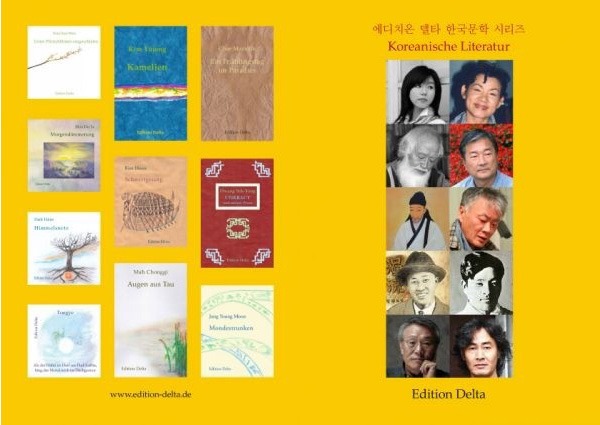
You are both poets and translators with experiences in journalism, how could this literary and professional background help?
As poets and translators we’ve been invited to interesting International Poetry Festivals in different countries and continents, where we usually go, hear, speak, read and know personally the poets and authors of the world. So we can have an up-to-date overview of new developments in poetry and literature. Since decades, we’re translating, mainly from the Spanish language, and, in that sense, we can incorporate our accumulated knowledge into the producing process of the books.
What other International literature works you are translating?
Edition Delta’s publishing programme focuses on diverse quality series – from Latin American poetry, for example: Juan Manuel Roca, Ángela Garcia, Henry Luque Muñoz (Colombia), Jorge Luis Borges, Juan Gelman, Alberto Szpunberg, José Muchnik, María Lanese (Argentina), Pedro Shimose (Bolivia), José Emilio Pacheco, Homero Aridjis (Mexico), Gustavo Pereira, Enrique Hernández-d‘Jesús (Venezuela), Rubén Darío (Nicaragua); and the complete poetry work of the Argentinian poet and thinker Roberto Juarroz (1925-1995), entitled “Vertical Poetry“ in various numbered bilingual volumes; to Lusophone poetry from Latin America (Haroldo de Campos, Brazil), Africa (Ana Paula Tavares, Angola, and Conceiçāo Lima, São Tomé e Príncipe) and Europe (Eugénio de Andrade, António Ramos Rosa, Casimiro de Brito, Maria de Nazaré Sanches, all of them are from Portugal, the current Guest of Honour at the German Springtime Leipzig Book Fair 2021 and 2022); Catalan (Miquel Martí i Pol, Joan Margarit, Teresa Pascual, among others), Sephardic (Clarisse Nicoïdski, Juan Gelman) and Spanish poetry (Juan Ramón Jiménez, Andrés Sánchez Robayna, Fermín Higuera, among others) from the Iberian Peninsula; to the literatures from Asia (Korea and Bangladesh), for example the bilingual book “Perpetual diary – Fortwährendes Tagebuch“ (English–German) by Dhaka poet Aminur Rahman, translated from Bangla into English by the Indian poet Sundeep Sen, Ziaul Karim, A.Z.M. Haider and the author, translated from English into German by the Austrian poet Manfred Chobot, and two anthologies “100 Poems from Bangladesh“ (English) and “100 Poemas de Bangladés“ (Spanish) with 25 emminent poets of Bangla poetry after Nobel laureate Rabindranath Tagore or the modernist poet Jibanananda Das. Last but not least, the Korean Literature Series, edited and all the covers designed by Juana Burghardt, is representing also a particularly intensive cultural dialogue.
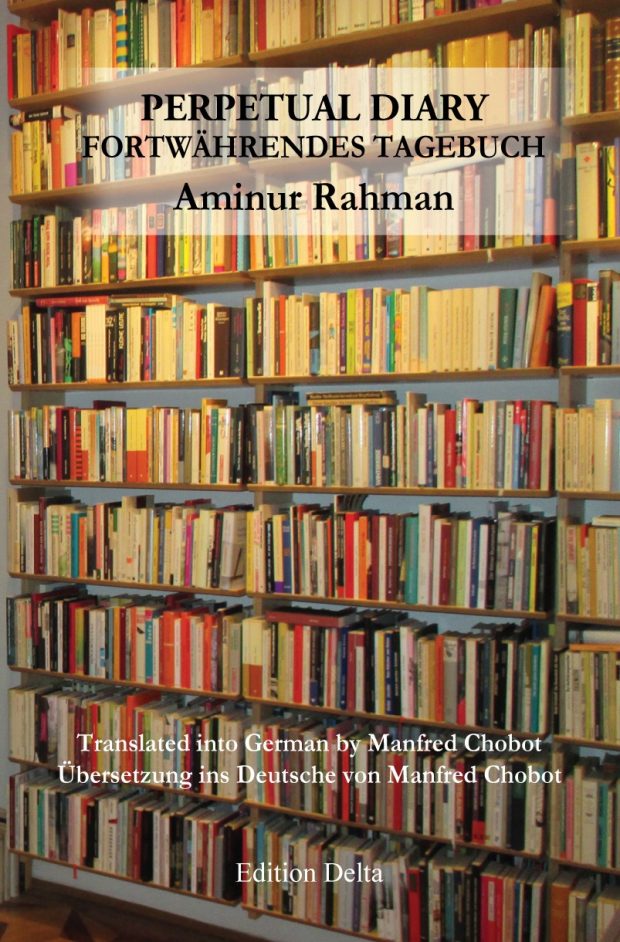
You have relationships with literature in Arabic, why is it absent in your list of publications?
Indeed, we’ve been cooperating during lots of years with the Al-Mutanabbi Festival at Zurich, Switzerland, and we co-founded the Babylon Festival for International Cultures & Arts at Al-Hillah, Babil, and Baghdad, Iraq. Our task and organizing challenge is to bring the Not-Arabic poets together with the Arabic poetry scene, on the one hand, and the Arabic poets with other cultures, languages and festivals, on the other hand. In Edition Delta we‘ve translated and published the poetry book “Babylonian Dusk“ in the blingual Arabic-German edition “Gurub babili* – Babylonische Dämmerung“, and than in Spanish “El ocaso babilónico“ by the Iraqi poet Ali Al-Shalah, who speaks also German, he lived his long exile period in Zurich, and who leads the both above mentioned festivals between Arabic and other literatures. Together with the Babylonian author, we translated at his home and at our home, sounding out, evaluating and weighing every word, every verse, every poem until we found the authentic and harmonious translated version in the respective target language.
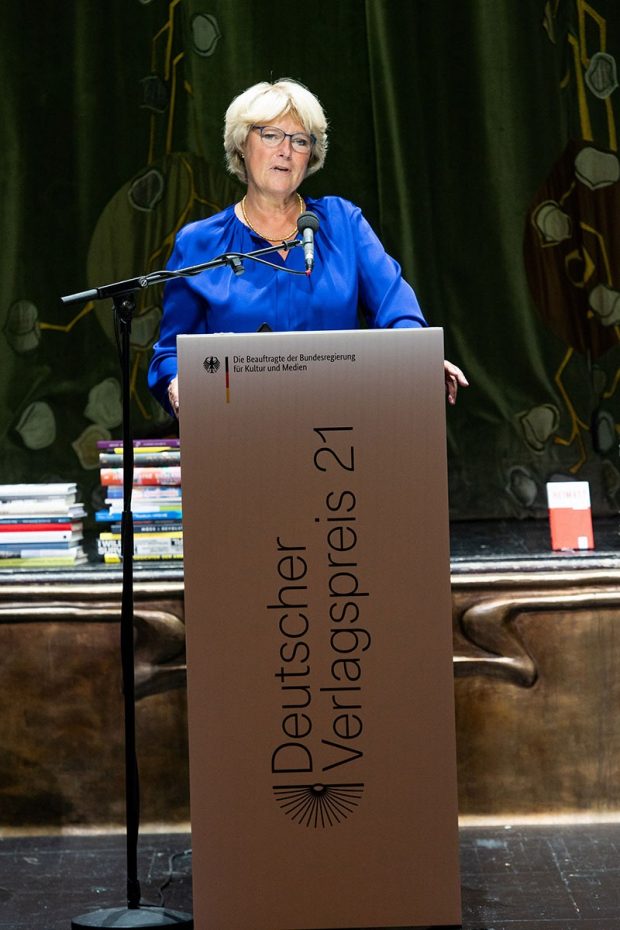
To what extent can the view of the poetry of other cultures be an enrichment for our own lives?
Even in the familiar there is something other, just as in other cultures and literatures there is something closely familiar.
Is bilingual edition a regular process?
Yes, especially in poetry we prefer bilingual books, because facing the two languages directly opens up the creative and tangible dialogue within poetry and between the respective poet, the translators and their readers. Only for novels, short story, essay and photography books this is not practicable, of course, there is another exciting reading flow.
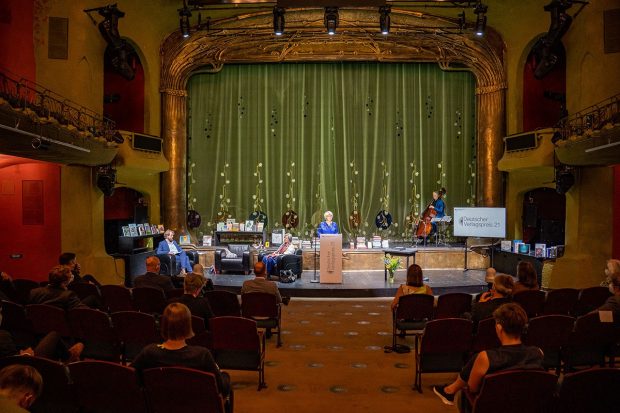
How difficult is the age of pandemic for Edition Delta?
During the long lookdowns, the bookshops here in Germany unfortunately were closed, as if books were not a kind of “food”, certainly not for the body, but for the soul and mental health. During this times of never ending pandemic, we could only sell via the internet, through the webshop of the publishing house ( www.edition-delta.de ), until the first bookshops started delivering their book orders directly to customers, by bicycle, courier or on foot. At the moment, the German bookstores are luckily open again. No one knows for how much longer? But nowadays alternative solutions for such cases are well prepared.
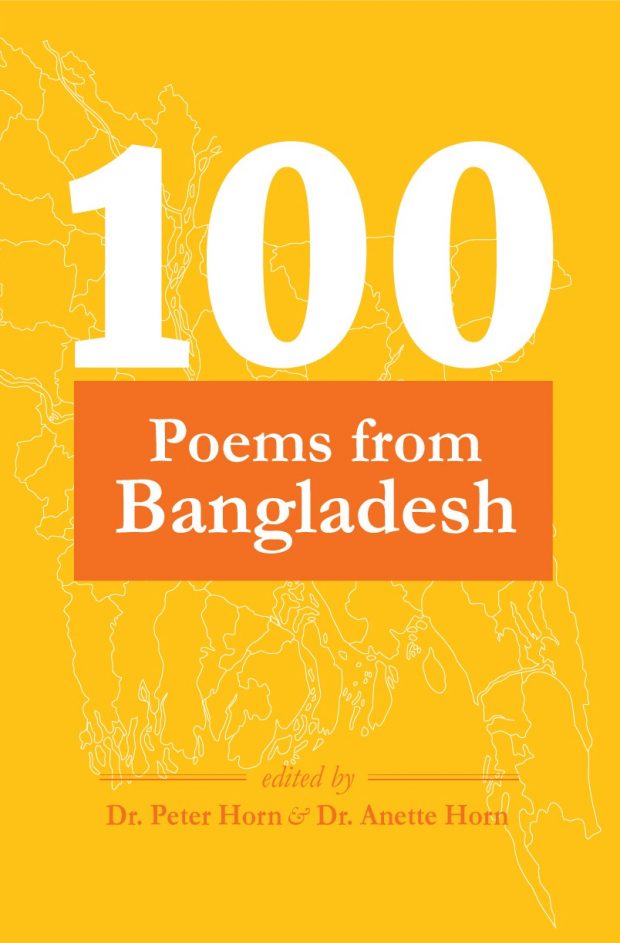
Korean literature in your Edition Delta has a generous space, why?
Because we love Korean poetic culture. We participated as poets in a German-Korean Literary Exchange visiting the beautiful country together with Korean authors like the poet, Germanist and essayist Kim Kwang-Kyu (*1941). We met him a while before during his fellowship at the Writers’ House in Stuttgart. He speaks fluently German, and with him we translated into Spanish his poetry book “Tenues sombras del viejo amor“ (Faints shadows of old love) and published it in the Spanish publishing house Editorial Verbum Poesía, Madrid. Later on, we started our Korean Literature Series.
Edition Delta has so far published eight mostly bilingual volumes of poetry (Korean–German) and seven prose works (novels, and short stories) in German translation in the Korean Literature Series. The Korean authors include modern classics such as Hwang Tong-Gyu (*1938) with the recently published bilingual poetry volume “버클리풍의 사랑 노래 – Berkeley’sches Liebeslied“ (Berkeley’s Love Song), and the poet Park Hijin (1931-2015). In his poetry you find the natural philosophy “Pung ryu do” (Way of Pneuma), in which all life is derived from the flow of pneuma (chi) in the universe and the three great traditions of Confucianism, Buddhism and Taoism converge in a new contemplation, as can be discovered in Park Hijin’s excellent hanshi quatrains or single-line four-character verses (Sa ja song o). Park Hijin writes poetologically about the Korean quatrain in his poem “In a Quatrain” (사행시 안에, Sahaeng-si an-e): “The quatrain joins earth, water and moon, / Reality & dream, soul & body, sacred & worldly, / Three elements in a quatrain – heaven, earth and human – “. (사행시 안에 지-수-화-풍이, 현실과 꿈이 있소. / 영혼과 육체, 聖-俗성-속이 꼬리를 물고 도오. / 사행시 안에 천-지-인 三才삼재의 조화가 있소.) Park Hijin is quiet a remarkable lyricist, whom in turn the recently deceased German philosopher and essayist Ludger Lütkehaus (1943-2019) rather hesitantly compared to the great German poet Rainer Maria Rilke (1875-1926) in the German-Swiss newspaper “Neue Zürcher Zeitung” (“A Korean Rilke?”) because it would not do justice to the “abundance of the heterogeneous” and “the polyphony of this poetry”.
As well as urban new discoveries such as the younger poet Kim Sun-Woo (*1970) with her bilingual poetry collection “도화 아래 잠들다 – Unter Pfirsichbäumen eingeschlafen“ (Falling asleep under peach blossoms). The Korean bestseller author Kim Hoon (*1948) with the novel masterpiece “Schwertgesang“ (The Song of the Sword) is also among them, as it is the renowned writer Eun Hee-Kyung (*1959), who plays a weighty role in the paradigm shift within Korean contemporary literature, with her collection of stories “Wer glücklich ist, schaut nicht auf die Uhr” (Who is happy does not look at the clock), and the creative trendsetter Jung Young Moon (*1965) with the deconstructive novel “Mondestrunken” (Moon-Drunk or Drunken by the Moon), which reflects cheerful, grotesquely playful, absurd and meditative moments of intuitive Buddhism.
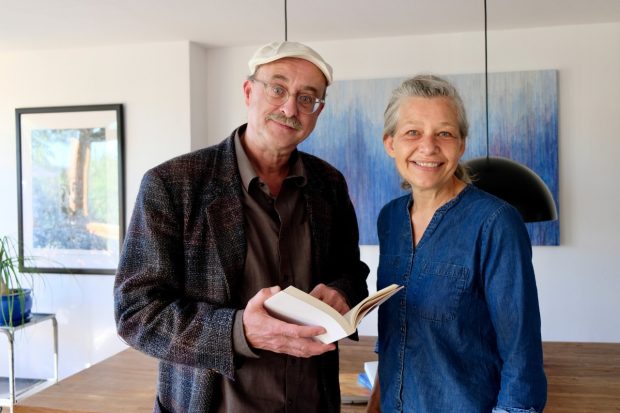
Or, another example, Kim Yang-Shik, (*1931), a renowned poet and founder of the Tagore Society in Korea, honored by the Government of India in 2002 with the highest Indian civilian prize of the Golden Padma Shri Award for her contributions to cultural exchange through the Korea-India Cultural Society, and awarded the prestigious Culture Prize 2018 in Seoul. She is one of Korea’s most popular contemporary poets. Her bilingual volume “순간 순간이 – Jeder Augenblick” (Every Moment) gathers 108 two-line poems, a minimalist constellation of micropoems, aphorisms, nature poetry and meditations that have internalised Buddhist, Korean and Indian images of thought. Her translator, the Korean-German poet Sophia Tjonghi Seo, characterises this work as “kind words” in her bilingual epilogue.
For only rarely does a country receive a poetic metaphor as an epithet like Korea, which is also called the “Land of Morning Calm or Morning Fresh/ness” after the first transmitted name 조선 (Joseon or Choson), whereby poetry establishes the country’s culture, as it were, and the metaphor creates its aura. This means, at the same time, that the German Publisher Prize 2021 for the Stuttgart-based literary publisher Edition Delta also dignifies Korea’s poetic culture.
On the occasion of the first 10 Korean books in Edition Delta, we presented excerpts from this new literary series publishing them both as a printed and online reader.
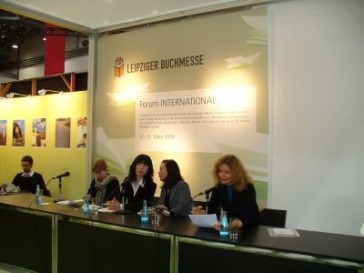
Portray the future for your series, your hopes, fears and plans?
First of all, we‘re delighted about the German Publisher Prize 2021 for Edition Delta, which will bring more attention to the mentioned world poetry and literature series. In the Latin American Poetry series, we‘re currently translating and preparing a trilingual volume by the Chilean Mapuche poet Elicura Chihuailaf (*1952), who was honoured with the National Prize for Literature in Santiago de Chile 2020. His book of poems will be published in the Mapuche language Mapudungún, Spanish and German. Indigenous literature has experienced an important and Nature-connected voice within contemporary poetry and literature from the second half of the 20th century until today, and Guatemalan Mayan poet Humberto Ak’abal (1952-2019) has also to be remembered as fundamental for this new Latin American poetry movement.
In spite of the health crises and natural disasters, we can only hope that the awareness for a responsible treatment of the nature of our unique planet Earth – we really don’t have another one – will be strengthened even more and, interestingly enough, will be accompanied by the currently continuously increasing interest in poetry worldwide.
Two text excerpts from “Every Moment” by Kim Yang-Shik
생각은
생각은 언제나 생각으로 멈추고
찬비 젖어드는 싸늘한 길 위에 흩어진다.
Gedanken
Gedanken bleiben stets nur Gedanken,
die auf den nassen Straßen vom kalten Regen zerstreut werden.
Thoughts
Thoughts always remain just thoughts,
scattered by the cold rain on the wet streets.
진실은
진실은 길가에 구르는 돌 속에 숨어 있고
들판에 피어 있는 꽃 속에 숨어 있다.
Die Wahrheit
Die Wahrheit versteckt sich in den Steinen, die auf den Straßen liegen,
und sie versteckt sich in den Blumen, die auf den Feldern blühen.
The truth
Truth hides in the stones that lie on the streets,
and it hides in the flowers that bloom on the fields.
Links:
Website of the German publisher Edition Delta (Stuttgart):
Korean Reader (Edition Delta, Stuttgart)) online:
https://issuu.com/yaez/docs/edition_delta_koreanische_literatur
“100 Poems from Bangladesh“ (Edition Delta, Stuttgart) online:
https://issuu.com/editiondelta/docs/100_poems_from_bangladesh_6182e2593ca509
View insight the bilingual book”Perpetual diary – Fortwährendes Tagebuch“ (English–German) by Dhaka poet Aminur Rahman (Edition Delta, Stuttgart) online:
https://issuu.com/editiondelta/docs/aminur_rahman_einblick_65545031f35411
Several other book covers of Edition Delta (Stuttgart) and the following Photos with credits, free to use:
Festive speech of the State Minister of Culture and Media Monika Grütters at the ceremony of the German Publisher Prize 2021 (Photo: BKM – Oliver Bodmer)
Award ceremony of the German Publisher Prize 2021 at Munich Kammerspiele (Photo: BKM – Oliver Bodmer)
Edition Delta – Tobias Burghardt and Jona Burghardt (Photo: Edition Delta, Stuttgart, Germany)
The Korean poet Park Hijin (1931-2015) (Photo: Edition Delta, Stuttgart, Germany)
The Korean poet Kim Sun-Woo and the editor of the Korean Literature series Juana Burghardt at the German Springtime Leipzig Bookfair, launching her bilingual (Korean–German) poetry book “도화 아래 잠들다 – Unter Pfirsichbäumen eingeschlafen“ (Falling asleep under peach blossoms). (Photo: Edition Delta, Stuttgart, Germany)


